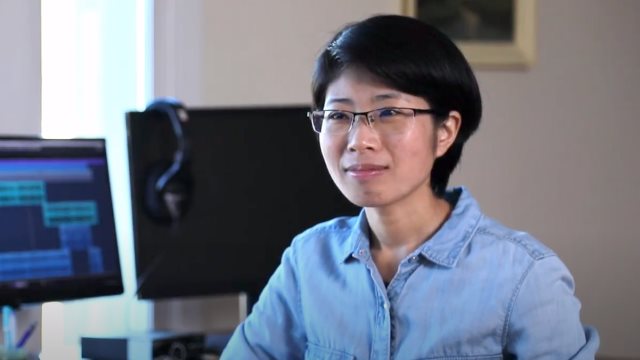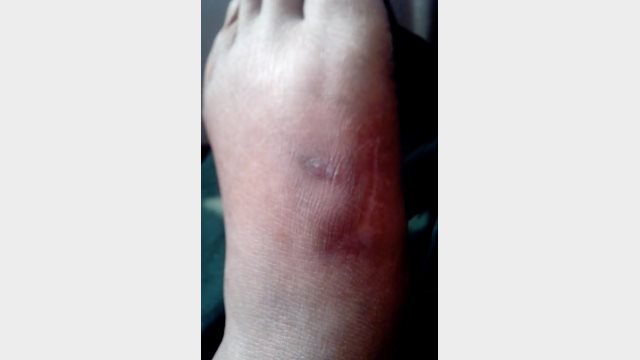In the United States and other countries, June 21 is Father’s Day. A member of the Church of Almighty God tells Bitter Winter the sad story of her beloved and persecuted father.
by Bai Shengyi
Arrested, tortured, disabled, separated, reluctant even to say goodbye… These are enduring memories of her father, which have not left her during the past years. She asked us to call her Chen Siqi (not her real name) to protect her parents who are still in China. On this Father’s Day, she shares with Bitter Winter the story of her relationships with her father.

Ten years of separation
In October 2013, staring at the hustle and bustle of the eastern Anhui Province’s Huainan Station, Siqi didn’t want to miss his father’s figure. During the past decade, Siqi had been imagining the scene of her reunion with him.
When Siqi spotted a familiar figure and the way he was limping along, she recognized him right away. She knew he was her father.
Siqi immediately rushed over and enveloped him in a hug. But the man pushed her off him and said, shocked, “Who are you?” Siqi felt like she was doused with cold water. She said to him, “Dad, I am Siqi, your daughter,” trying to help him collect his memories. The man did not recognize her, until she mentioned her grandparent’s names. He grabbed her hands eventually, saying he could hardly believe the girl in front of him was his own daughter, to whom he last bid farewell ten years before.
A father subjected to brutal torture
Both Siqi’s parents are members of The Church of Almighty God (CAG). “When I was little, I’d often nestle into my mom’s arms to learn hymns, and climb onto my dad’s back to go to gatherings. I was always so happy back in those days,” she remembers. Her happy life was ruined when she was 11 years old, because her parents were arrested by the CCP.
In April 1999, Siqi’s father was arrested while he was delivering CAG literature. Over a month later, her mother was also arrested, while she was doing church work. Her father and mother were sentenced to 5 and 2 years in jail respectively.
Later, Siqi learned the heartbreaking story of her father from his diary, where he talked about his arrest and the torture he had suffered.
After her father was arrested, the police officers handcuffed one of his hands to the door, and the other to the window. They dragged him back and forth and beat him up continuously. They then cuffed him with one arm over his shoulder, and the other pulled up his back, then forced him to do squats over and over again. As a result, the handcuffs cut deeply into his wrists, leaving deep lines marking the flesh.
He was overwhelmed by the inhumane torture, and tried to escape by crossing the railing while the police were away. But he was found. The police grabbed him and let go, causing him to fall heavily from the second floor and immediately break his left foot. The police swarmed him and almost killed him. Then one of the officers maniacally rolled his foot again and again. It hurt so much that he almost fainted.
His fractured foot was untreated. Only after an interrogation of two days and three nights did the police reluctantly have a doctor quickly fix his foot with a few pins. A few months later, the sloppily fixed pins started to poke out through the skin, and he was in unbearable pain. He repeatedly begged the guards to allow him to receive medical treatment, but was turned down. He had no choice but to grit his teeth, endure the pain, and yank the pins out himself, with blood spewing out at once.
Unsurprisingly, the wound got infected and inflamed. He asked the guards for anti-inflammatories and painkillers, but they refused with evil smiles on their faces. Instead, they subjected him to forced labor, leading to his lifelong disability.

Special messages
During their detention in the dreaded reeducation camps, what comforted Siqi’s parents most were Almighty God’s words written on small slices of paper, brought by their family when they visited them. They were well aware that, if identified, they would not only be subjected to brutal torture, but their jail terms would be prolonged.
Siqi reports that often, her grandfather would take a passage of Almighty God’s words and had her write it on a small piece of paper. He then prepared a large jar of fried pork pickle and announced he will be away from home for a few days. Siqi, a sensible 11-years-old girl at the time, who was discriminated by her schoolmates after her parents had been arrested, knew that her grandfather was leaving to visit her father and mother in prison.
From then on, she particularly treasured every opportunity of preparing Almighty God’s words. “I knew it was God’s words that supported my parents in their hard times. I want to tell them I was doing well, and I was growing up, by preparing for them nicely written messages,” she says.
With no dolls and no physical presence of her parents, Siqi says she maintained a more special connection with her imprisoned father, compared with most fathers and daughters.
The CCP’s cruel repression of the CAG often creates separation and disruption to the members’ families. According to a 2018 report of the Office of the United Nations High Commissioner for Human Rights, “During 2014-2018, the Chinese Communist Party’s monitoring, arrest, and persecution had caused at least 500,000 Church of Almighty God (CAG) Christians to flee their home, and several hundred thousand families had been torn apart.”
Further separation
Finally, Siqi saw her father return home from prison, but they had to split up again. The quick reunion was destroyed by the police’s harassment and surveillance.
Even after their release, CAG members are closely monitored by the government to ensure that they no longer practice their faith. The only way of keeping the faith is to escape, which means remaining incognito, living forever an exile life to avoid arrest, and heavier penalties once arrested again.
Siqi vividly remembers the day her father left. To avoid being noticed by the CCP’s informants, her father had to leave before dawn. That day, Siqi got up early and stayed close to him. She stayed behind him quietly when he brushed his teeth and washed his face. She also covertly stood behind him when he packed his luggage. It would be hard to expect another meeting with her father if he left this time, she thought.
Siqi learned from her father later that he was afraid of turning around to have another look at her that day, as he was trying hard to hold tears in his eyes.
A decade has passed since they last saw each other.
Fleeing overseas
After meeting them at the station, Siqi remained with her parents for four days only. Very soon, another arrest destroyed their reunion. Siqi’s father learned that two of the CAG members he had been in frequent contact with had been arrested, and that he might be arrested at any time. Not wanting to implicate his wife and daughter, he insisted that he would leave them immediately.
“There’s too much surveillance inside, so I won’t go in with you to buy a ticket.” Siqi still remembers her father’s words. She never expected it could be their last meeting.
“As the bus was pulling out of the station, I saw my dad standing far off, staring toward the bus station exit and looking around for me. I really couldn’t hold my tears back anymore at that point …” Siqi is still emotional when she recalls the scene of their separation.
In 2012, Siqi was arrested herself for evangelizing on behalf of the CAG, and acquired a police record as a result. After being released, she had to go into hiding to avoid the police’s further harassment. Then in 2014, the CCP launched its “Hundred Days Battle” against the CAG, and Siqi was forced to escape China, as she had no way to hide there.
Deep concerns
What Siqi has been thinking of is the safety of her parents who are living in China, especially her father. “I know my father has always been among the most wanted by the CCP,” she says. In 2010, when she went to a local police station just to get an ID card, the captain of the municipal National Security Brigade was there, to personally question her about her father’s whereabouts. In August 2016, after her father had been forced to live in hiding for 13 years, the local police burst into the home of her elderly grandparents again to figure out where her father was. They even took her grandparents’ blood, saying this would help them find their son through DNA testing.
“No news is good news,” says Siqi when talking about her parents. Hardships, at least, taught her how to stay calm and feel stronger.
Source: Bitter Winter












